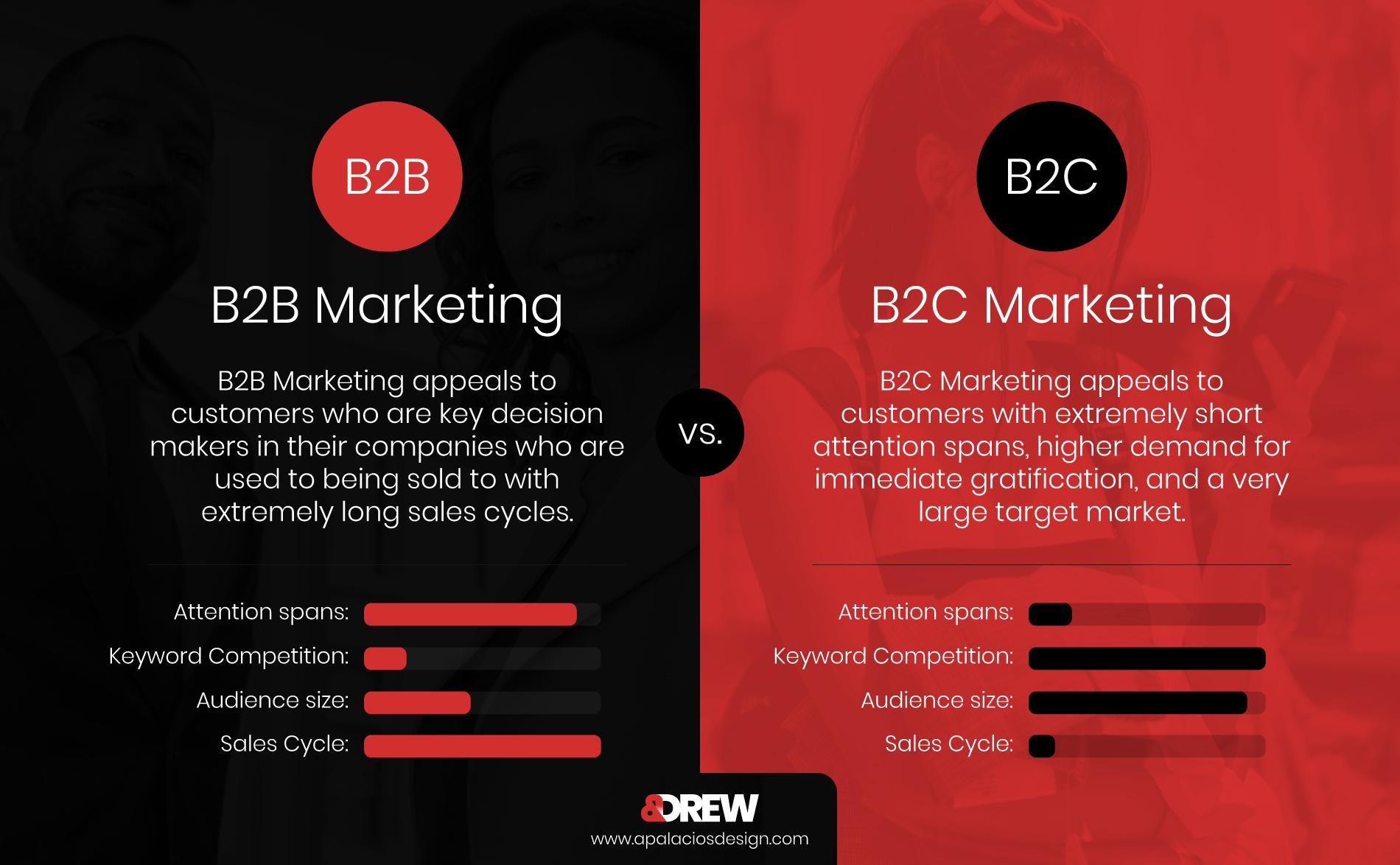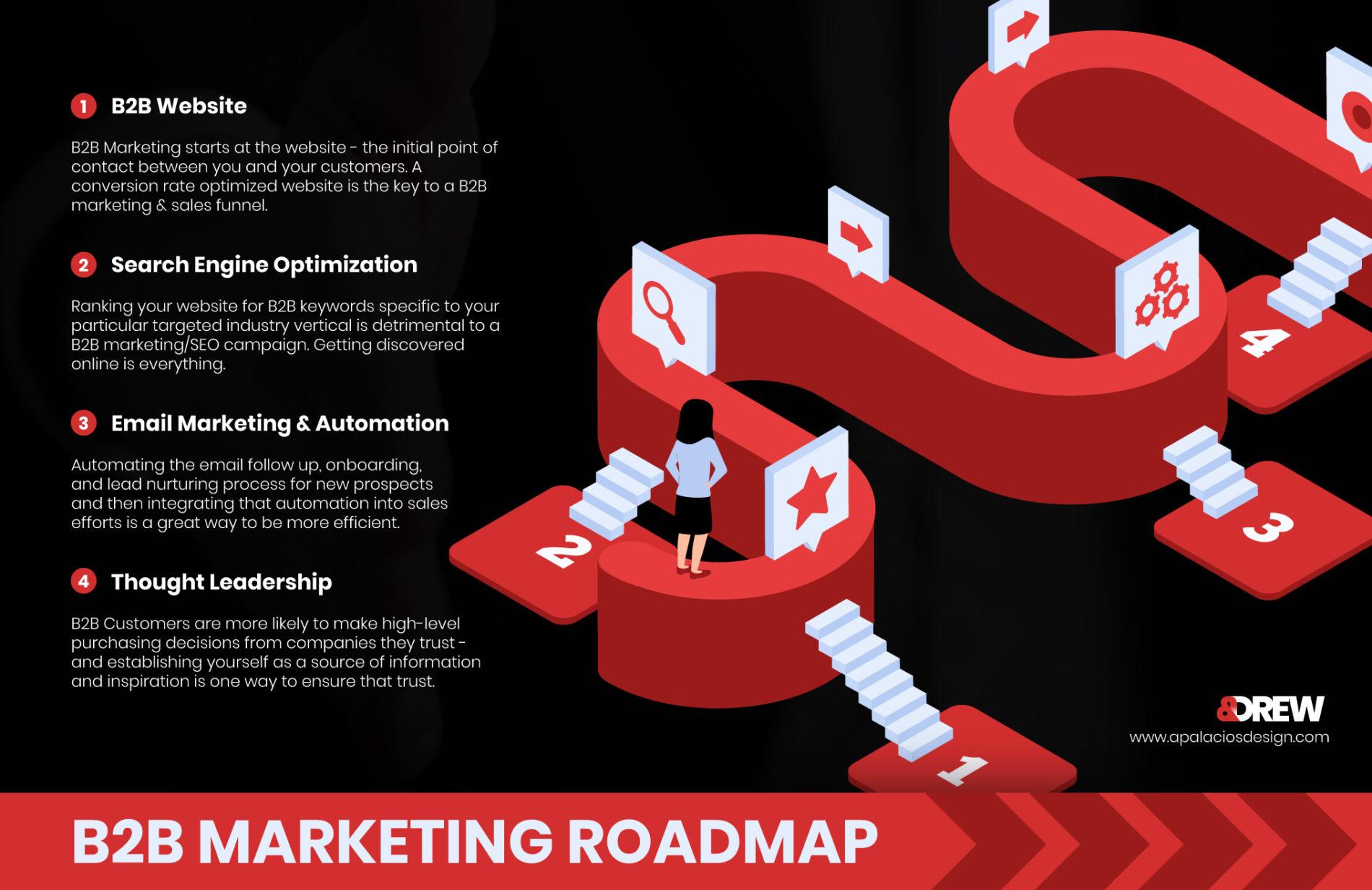Discover the top B2B marketing strategies for 2021 that you can implement today to scale your company’s approach to B2B marketing. To learn more about B2B marketing, read this article explaining B2B marketing and what differentiates it from traditional consumer/B2C marketing: B2B Marketing Explained.
Win the Business to Business Marketing Game This Year By Focusing on Engaging, Exciting Content
Business to business (B2B) marketing is emerging as a crucial tool for companies that sell products or services to other companies. B2B marketing for far too long has been infamous for its boring tactics, dull calls to action, and complete lack of engagement. In some circles, B2B marketing is simply short for “boring to boring.”
But in 2021, as marketers are finding, boring no longer cuts it. Savvy marketers are seriously upping their game, skipping those boring marketing tactics and launching new, exciting, engaging B2B marketing campaigns that wow clients and help them launch ahead of the competition.
Think Like B2C Instead of B2B
Clearly, B2C is where all the fun is and the cool kids are. But why? Why does B2C get to have fun while B2B is relegated to droning marketing copy and calls to action that would put a dog to sleep?
The simple answer is that you can use the best of B2C marketing tactics in your B2B marketing campaigns, creating dedicated customers and exciting platforms while rethinking how marketing to B2B clients should look and feel.

First of all, let’s get some housekeeping out of the way:
- What is B2B marketing: Business to business marketing is the marketing of products or services to other businesses and organizations. It’s different from B2C marketing, which is oriented toward consumers.
- How is B2B marketing different from B2C: Since B2B customers may be more operationally and ROI focused, B2B marketing may tend to be more informational and straightforward than B2C. In B2B, you may be selling to a committee and stakeholders, not a sole party who may be guided strongly by emotion.
- Who is B2B marketing for: B2B marketing is for any company that sells to any other company and can include everything from security solutions to software-as-a-service subscriptions, vehicles, computers, and more. The key to remember is that many companies have both B2B and B2C components.
Why You Need to Create a B2B Marketing Strategy
If your B2B marketing up until now has focused on slide decks and spreadsheets, this is your chance to get creative and think outside the box. Yes, you may still need to rely on those spreadsheets to demonstrate things like performance characteristics, but now you can create a strategy that has vision and life.
A marketing strategy will help you and your organization understand your marketing goals, your customer’s wants and needs, and how you can optimize your operations to enhance sales goals and grow your audience.
Here’s why you need a marketing strategy:
- Speak directly to your target audience: By working through a marketing strategy, you begin to better understand what it is your target audience wants and what motivates them to buy. Then, you can pinpoint your audience more precisely and learn how to communicate on their level.
- Optimize your spending: When you don’t know who your target audience is you may spend money in places that are not best positioned to reach them. You need to build a trusted, recognizable brand with a clear message that arrives at the right time in the buyer’s journey — spending your money wisely will build on those goals.
- Streamline your messaging: Once you know who your audience is and where you are going to reach them, you can create clear, consistent, recognizable branding language that positions your company and builds on successive marketing efforts.
- Create objectives, key performance indicators, and returns on investment goals: Now, with your target market identified and your platforms delineated, you can create goals for what you want to accomplish, how your efforts will be measured, and what your definition of success will be. You can also then actually measure how much you are spending and how much you are earning from that spending.
- Take a look at your website: In B2B, a company’s website is one of their most important sales tools. A good B2B website accomplishes at least two things: it informs traffic of what you do and answers potential questions they might have, and it converts traffic into inbound leads. Having a good B2B website is vital before you start implementing any other things within this guide to spruce up your approach to marketing.
- You can get serious about lead generation: Even spotty marketing efforts will net you some results, but with a cohesive marketing plan in place and concrete goals on how, where, and when you will reach your B2B customers, you can drill down on lead generation efforts, create and nurture warm leads, and build on past marketing successes.
How to Create a Marketing Strategy: Hire a Pro or Go It Alone?
It is certainly possible to DIY your own B2B marketing strategy, though there are clear benefits to outsourcing this task in whole or in part to a marketing specialist.
If you are going to create your own plan, the preceding steps will be helpful, and there are plenty of places online where you can find templates and gather more marketing intelligence.
By partnering with a professional marketing agency, however, you will gain a trusted partner who is up to date with the most recent B2B marketing advice and armed with strategy and best practices you can use to build out your market research efforts and optimize your B2B marketing plans. Rather than struggling through individual details, you will have a team who can help you do that or even someone who can handle the entire process for you.
How to Create a B2B Marketing Strategy: 5 Steps to Follow
Your business-to-business marketing strategy is a tool you can use to expand your customer base, generate more leads, and sell more products and services. What follows here are five steps you should consider when you are building out your marketing strategy, although it is important to note that this is not a hard and fast list of rules and standards to follow — as you develop your strategy you may find that you need to narrow the scope of some of the steps, or expand the scope, and add or subtract steps based on recent experience.
No matter what you settle on, some of these components will certainly work for you. Remember: Competition for customers is incredibly fierce these days, and building your business to business marketing strategy will require careful, considerate planning, execution, and management.
Here’s a general overview what you can use to start standing out in a crowded marketplace:
1. Develop a vision
First, define in as clear terms as you can what you want your marketing strategy to accomplish. Enter a new market? Appeal to a new class of customer? Introduce a new product or service? Build name recognition? This will form the foundation of how your marketing strategy will proceed.
You can begin by solving these marketing riddles:
- What corner of the market do you want to own?
- How will you go about owning it — product leadership? Industry leadership? Organizational leadership?
- Where will you engage with your audience?
- How will sales and marketing work together to meet these goals?
- Who will do the work — the marketing team? Internal assets? Freelancers? Outside agencies?
- How will you maximize your content?
2. Define your market and buyer persona
While B2C products could go to a huge variety of people — if you are selling toothpaste, for example, you could count literally everyone in the world — B2B products are usually going to be marketed and sold to a specific and easily definable set of personas: Marketing managers, CIOs, IT managers, accounts managers, vice presidents, CEOs, and other similar roles.

But just naming those positions and personnel is not enough. Successful marketing efforts will understand those personas as though they were family members, neighbors, and friends. To create these personas, you will likely find you need to engage in substantial research, both through market analysis and customer insight, including interviews.
You will want to know demographics and personal details such as:
- Position name
- ROle and job duties
- Goals
- Challenges
- Age
- Income
- Education
- Location
- Personal story, including the company, company size, number of accounts, team size, competition, company growth, complaints, where they get their insights from, and other similar attributes
3. Identify your B2B marketing tactics and channels
Once you understand more clearly who your audience is and even what they like to do in their free time, you can begin to work on determining how and where you intend to reach them. The creation of the persona, with as much detail as possible, will inform this step and help you answer a number of critical questions, such as:
- What online sites do they visit?
- What questions do they ask in search engines?
- What social media networks do they prefer?
- What industry associations are they allied with?
- Are they likely to be familiar with your brand and/or product and service?
- Are they looking to make a switch to something new?
- What challenges do they face and how can you help them confront those challenges?
4. Create assets and execute campaigns
Now that you know who you are marketing to and where you are marketing to them, you can begin to create actual assets. For example:
- If your target customer is on specific social media sites, you can create organic social media posts and pay-per-click advertising.
- If your target customer is posing certain questions on search engines, you can create a website, landing page, and blog content optimized around those search terms.
- If your target customer attends specific industry events, you can seek sponsorship opportunities at the events or buy search engine paid advertising tied to those event keywords.
- If your target customer prefers, say, video content, you can create tailored video content that answers questions and promotes products.
No matter what platform you are engaged on, make sure that the content you and your team produces incorporates your marketing strategy, includes common themes and recognizable branding, and that leads to the desired action — buy now, learn more, contact sales, fill out the form, download the white paper, get the discount, or whatever it is you are trying to get accomplished.
5. Measure, measure, measure — and then improve
One great thing about digital B2B marketing is that it can generate a lot of highly useful data. If you are writing blogs, for example, you can track clicks, bounce rate, and time on page, and if your blog has a call to action, you can see how many click-throughs there are. You can also use analytics tools to see where your readers are, what device they are using, and more. If you are sending emails as part of your business-to-business marketing campaign, you can track send rate, unsubscribe, open, click to open, and click-through rate. If you are launching organic social media campaigns, you can track likes, shares, and clicks.
Armed with these data, you can learn more about your target market, what marketing tactics resonate with them, and how you can use those data to refine your practices and optimize your campaigns and spending dollars.
Facebook not getting the shares you wanted? Investigate Instagram. Blogs have a high bounce rate? Try better headlines and more focused content. Emails getting deleted without being opened? Try different subject line and preheader combinations, longer or shorter subject lines, and more compelling call to action buttons.
Different Types of B2B Marketing Assets
There are oodles of different types of marketing assets you can call on to drive results in your B2B marketing campaigns. Here is a rundown of some of the most popular and impactful:
- Blogs: One of the most powerful marketing tools, blogs address potential customers directly and provide a large amount of tailored content which can help boost your search engine rankings. Blogs can be almost any length, but most are usually between 500 and 1,200 words.
- Search: Search marketing is a dynamic tool and a difficult space to operate in, as the algorithms that lead users to specific search results constantly change. Formerly the domain of keywords and metadata, the shift lately has been to searcher intent signals. Pay close attention to best practices rules for length.
- Social Media: Both organic and paid social media campaigns can be used to gain access to your market personas. Organic social media marketing primarily involves posts to your social media pages. Paid social media marketing involves ads you place on different social media platforms. As with search marketing, pay close attention to social media platforms and best practices rules for length, including the minimum and maximum lengths for headlines, body, and image copy.
- Whitepapers/eBooks: Persuasive, authoritative, in-depth discussion and analysis of key topics that inform customers. Whitepapers and ebooks may detail a specific problem in a certain industry and offer a solution to that problem. These advanced problem-solving tools are usually written by subject matter experts and optimized with the help of marketing pros. More in-depth and detailed than a blog, these typically begin at no less than 5,000 words and range skyward in length.
- Email: Email marketing sends commercial messages to a group of people. That group can include email addresses culled through marketing efforts, purchased lists, and customers who opted in to receive marketing campaign material. Email marketing is gradually losing its effectiveness thanks to the rise in filters, but email still offers excellent return on investment, creates plenty of useful data you can use to inform future marketing activities, and can be an excellent way to make customers aware of new products, discounts, and other services. Email can also be used to cross-promote blogs and white papers, and be a forum for nurture campaigns that keep recipients generally informed of your activities, including everything from new product announcements to holiday sales to entertaining content.
- Videos: Video marketing is growing in importance and, if done right, can have incredible engagement. This medium is changing fast, however. Not too long ago, B2B marketers focused on creating long, how-to videos and detailed educational content. Now, with the likes of TikTok, marketers are creating engaging, entertaining content just a few seconds long. Keep in mind that video content may not exist on its own — it can be used in email marketing, blogs, social media campaigns, and more.
That’s not all, of course. A full-service B2B marketing partner should be able to help you with branding and design, website design and construction, strategy, automation, and analytics.
Best Practices for Business to Business Marketing: What You Can Do to Succeed
Naturally, simply writing a blog, buying an ad, crafting a post, and creating video content is not enough to win customers and open new markets. You have to do everything right — and that takes a special touch. While successful business to business marketing is a skilled art, here are some guidelines to keep in mind while you work to create content:
- Set realistic goals: Spend time evaluating your current position and set stretch goals that are both realistic and tangible.
- Establish a clear brand identity: You likely already have a lot of competition. Prepare yourself to communicate exactly what it is your business does and how you can bring value to your customers.
- Ensure all of your digital assets are in place: This may sound like a no-brainer, but it is worth mentioning. Small businesses, in particular, may need to ensure their websites, social media platforms, and more are in place.
- Use more than one channel: It may be tempting to just pick Facebook, blogs, or email, and focus all of your marketing efforts there. Don’t. You want an omnichannel solution that extends your brand reach and capitalizes on different consumer preferences.
- Be human: You are not really marketing to businesses, you are marketing to people — people who may be confused, overworked, hounded by their boss, or about to leave on a well-deserved vacation. Like anyone else, those people are driven by emotions and logic, and catering to those will go a long way in moving your marketing plan forward.
- Use targeted marketing: Campaigns that are too broad will wind up wasting your time and money. Don’t send marketing material to people who are not interested in what you are selling — not only is it a waste, but it is irritating. Focus your message, your medium, and your efforts on specific niches, exact times, and critical personnel. Make every action, blog, post, and @mention count.
- Be a thought leader: You aren’t just selling a widget. You are selling your expertise in a market and the ability to help people realize their own goals. You can be a thought leader by going beyond simple content creation. Be consistent in your message, go into detail, answer questions no one else is answering, develop a clear and authoritative point of view, stick to your specific message, share your knowledge, use simple language to provide value, and don’t be afraid to put yourself out there.
- Be different and stand out: Similar to being a thought leader, you need to make being different and standing out a key trait of who you are and what you do.
If these best practices show you anything, it’s that quality, not quantity, is critical in B2B marketing campaigns. Keep that in mind as you craft yours.
Business to Business Marketing: Breaking It All Down
Make no mistake about it, B2B marketing is a complex, dynamic, and difficult endeavor — but it is also one that is highly rewarding and even radically transformative for your business and your market. Here are the highlights to keep in mind as you think about and prepare to move forward:
- Even though you are a business that is marketing products and services to other businesses, you are really a human talking to a human. Keep this in mind as you seek to connect with potential clients.
- To create a B2B marketing strategy, develop a vision, identify tactics and channels, generate content, and place that content on the optimal platform to spread your message.
- Work tirelessly to understand your customer. There is no shortcut to this — you need to understand this person in detail, from what they earn to what their day-to-day challenges are and what their boss is demanding from them. The best way to do this is to conduct detailed customer insight interviews.
- Don’t think of your individual content assets as singular, isolated pleadings to buy from you. Think of them as part of a conversation, one that is targeted and contextually relevant. By positioning yourself as a thought leader, and by answering the questions that no one else is answering, you can be the one who guides this conversation — and do so to your advantage.
- The most popular types of marketing contingent include blogs, search engine optimization, search engine ads, white papers, ebooks, email, social media, and video.
- It is possible to launch your own marketing campaign, but by partnering with a dedicated B2B marketing firm, you will gain a key partner who is fluent in the latest in marketing tools and trends.
Find the Right B2B Marketing Partner
Have you decided to partner with a B2B marketing agency for your marketing initiatives? Are you wondering how to pick just the right one? Choosing a B2B marketing partner is not too different from choosing any B2B partner: You want a partner that is aligned with your goals, shares your vision, understands your criteria for success, and will bring you tangible results with measurable ROI.
Choosing any partner, of course, will entail an element of compromise. For example, you may want to work with a partner to extend your reach into new markets, and while you might be able to find someone who can help you accomplish that, it might mean accepting it may not be possible to provide the perfect B2B brand experience through direct sales domestically.
A key criterion should be understanding that the partner you choose has the internal resources necessary to serve you. That could include training, support, and resources, and means performing your due diligence. No, it does not mean you should only partner with large marketing companies; what it means is that any potential partner should have the resources currently available to help you meet your goals.
Working with a good B2B marketing partner is not going to be free, but it will likely pay for itself. Yes, you could do many of these tasks internally, or even with interns. It is best to think of hiring an outside team of B2B marketing experts as an investment: Yes, it will cost you upfront, but it is almost guaranteed to be more cost-effective when it comes time to measure the campaign effectiveness.
B2B Marketing Solutions from Revved Digital
Revved Digital is a market leader in business-to-business marketing strategy creation and execution. Revved is strictly focused on B2B marketing, which means we know and understand the B2B marketing landscape and what works both today and in the future. We are masters at:
- Corporate branding
- Web design
- Digital marketing
When you are ready to build your brand, expand your reach, and polish your image, contact us to get started.
P.S. Special thanks to Georgia Austin for their key contributions to this article.














































